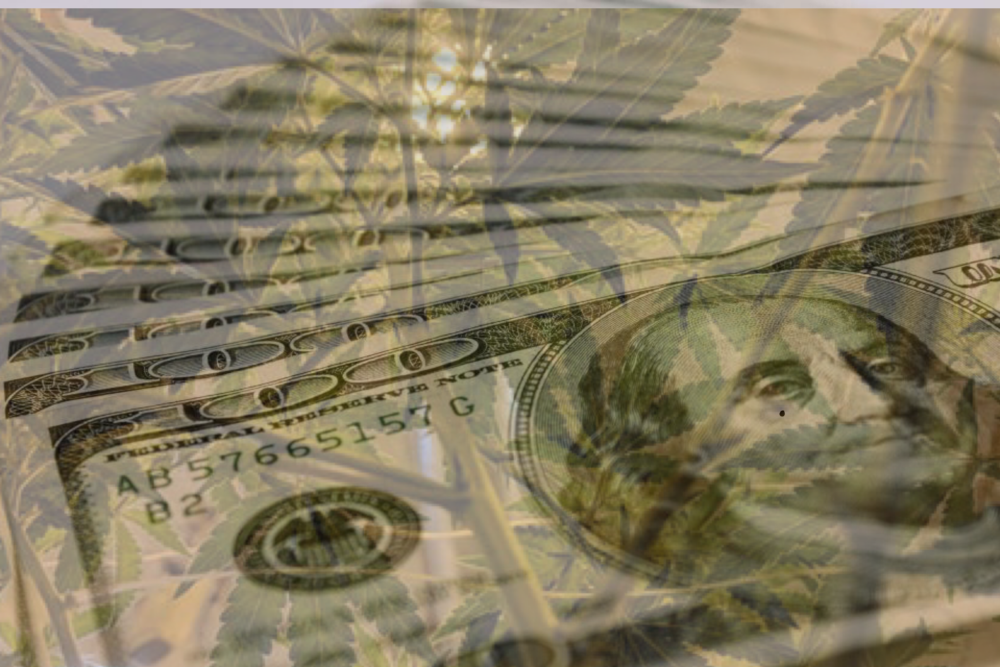Locked Up & Locked Out on 4/20
April 20, 2018

April 20, 2018
By Tyler Whittenberg
For the month of April, we are uplifting environmental injustice in the context of race. In the spirit of earth day, we will have commentary from our staff on how people of color are disproportionately impacted burdened by environmental policy and decisions.
The criminalization of cannabis in America is, and has always been, about racial oppression and capitalist greed. So it is no surprise that the current culture shift towards normalization neglects those imprisoned for what is now legal and rejects people of color seeking to benefit from the budding industry.
Marijuana was not criminalized because it is physically or psychologically harmful. In 1937, Congress effectively criminalized possession in an attempt to control Mexican immigration and reduce the economic competition hemp production posed to pharmaceutical and timber companies.[1] In October of that year, Moses Baca became one of the first people convicted and incarcerated for possession of marijuana. He was sentenced to 18 months in Leavenworth Penitentiary.
Cannabis soon became a “schedule controlled substance” despite numerous calls for decriminalization from physicians, researchers and politicians. Nixon’s “War on Drugs,” more accurately characterized as a war on peace activists and Black people, helped rapidly increase the number of people of color incarcerated for marijuana-related offenses.[2] Despite the fact that marijuana use is roughly the same among Blacks and whites, statistics show that Black users are still over three and a half times as likely to be arrested for marijuana possession.[3]
Thanks to the efforts of grassroots activists, the tide is turning. As of January 2018, 29 states have legalized the use of marijuana for medical purposes, while 9 states allow for recreational use.[4] Nonetheless, countless people of color remain incarcerated for marijuana-related offenses for which they would not be charged today. Black and Brown communities are also being locked out of the legal cannabis industry, which generated $6.7 billion in profits last year and has a projected growth of $44 billion in three years.[5] Nationally, less that 5% of marijuana businesses are owned or founded by Black people.
Organizations like The Hood Incubator and The People’s Dispensary are working to change that. The Hood Incubator reaches out to Black and Brown community members who are interested in the cannabis industry to help with permit applications and connect them to investors and business incubators. Similarly, The People’s Dispensary is promoting equity in the industry by implementing a cooperative business model that allows for low-cost investment for small and non-accredited investors and provides free health services for low-income customers.
As we celebrate 4/20, we must remember our brothers and sisters of color who are locked up for something many now legally enjoy and those who are locked out of the economic benefits associated with that legalization. We must demand that our people serving time for marijuana are released and that courts forgive and/or reimburse all fines and fees associated with citations, arrests and convictions for possession and distribution of cannabis. We must also demand that the sprouting cannabis industry and the laws regulating it mandate the inclusion and empowerment of Black and Brown communities. With new laws and new markets come new responsibilities – let’s rise to the occasion.
Tyler Whittenberg is a Staff Attorney at Advancement Project.
[1] http://maui.hawaii.edu/hooulu/2016/01/15/industrial-hemp-a-history-and-overview-of-the-super-crop-and-its-trillion-dollar-future/ and https://fee.org/articles/the-racist-roots-of-marijuana-prohibition/
[2] Top Adviser to Richard Nixon Admitted that ‘War on Drugs’ was Policy Tool to Go After Anti-War Protesters and ‘Black People’. Press release by The Policy Alliance (2016). Obtained on March 15th, 2018 from: http://www.drugpolicy.org/press-release/2016/03/top-adviser-richard-nixon-admitted-war-drugs-was-policy-tool-go-after-anti
[3] The War on Marijuana in Black and White: Billions of Dollars Wasted on Racially Biased Arrests. ACLU (2018). Obtained from https://www.aclu.org/report/report-war-marijuana-black-and-white?redirect=criminal-law-reform/war-marijuana-black-and-white
[4] This map shows every state that has legalized marijuana. http://www.businessinsider.com/legal-marijuana-states-2018-1
[5] https://pitchengine.com/peoplesdispensary/2018/01/02/for-ca-cannabiznesses-of-color-legalization-d/002518876185363172581
For information on addiction for the senior community, check out the National Council on Seniors Drug & Alcohol Rehab.